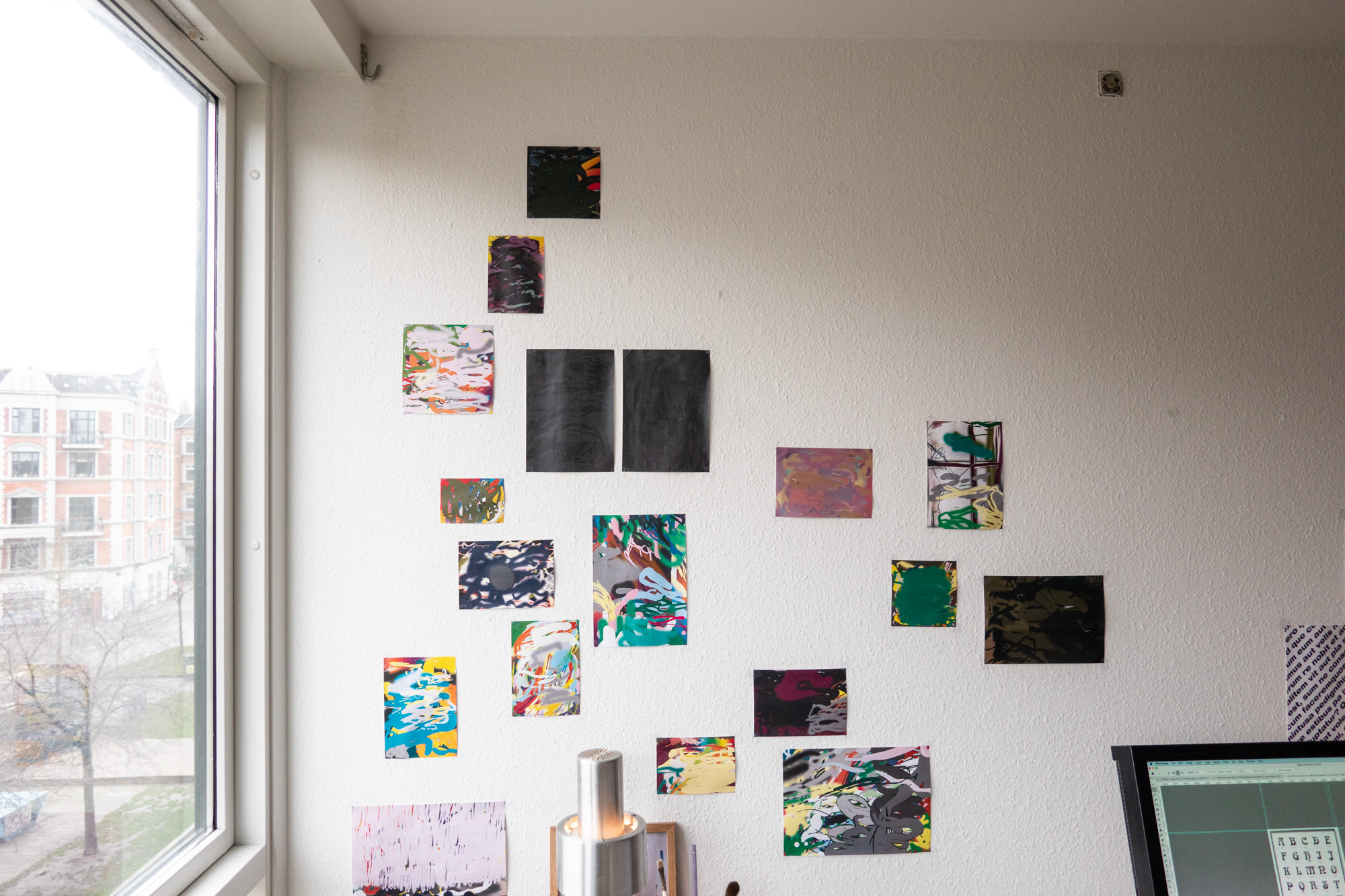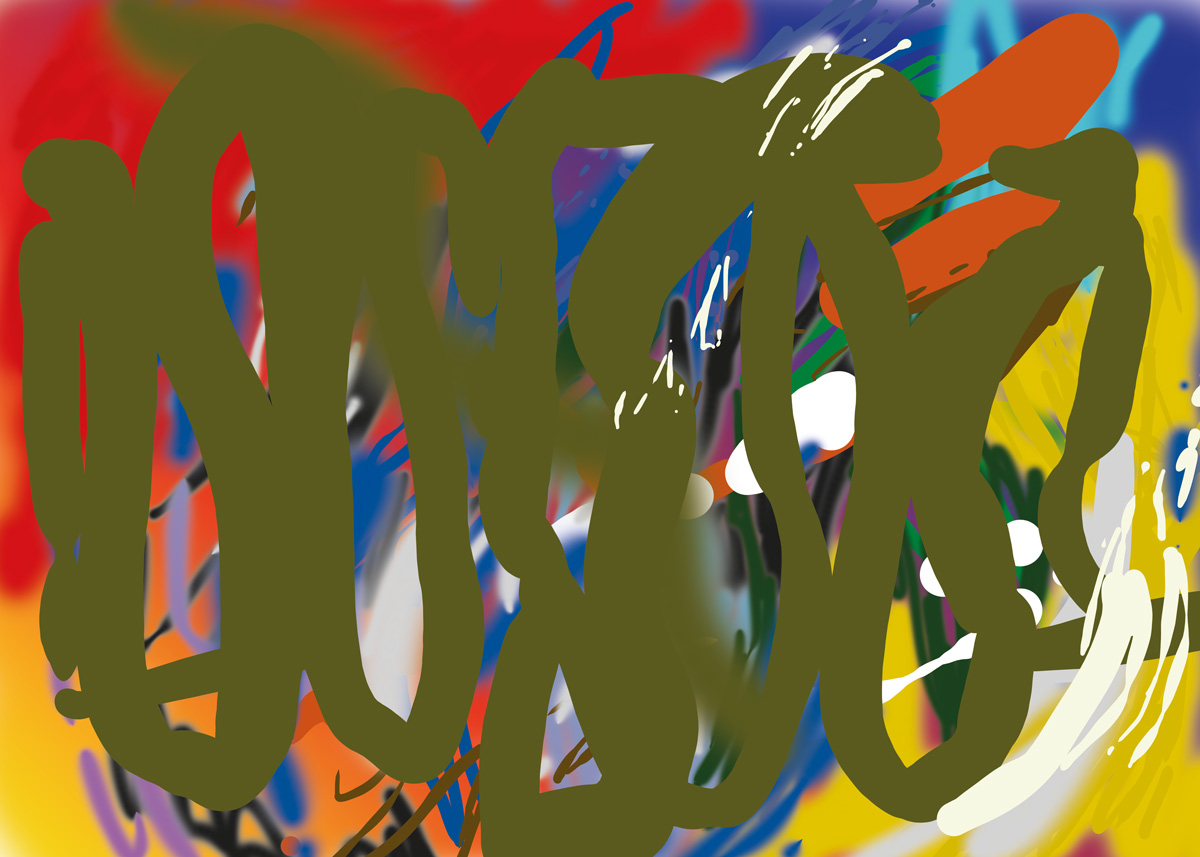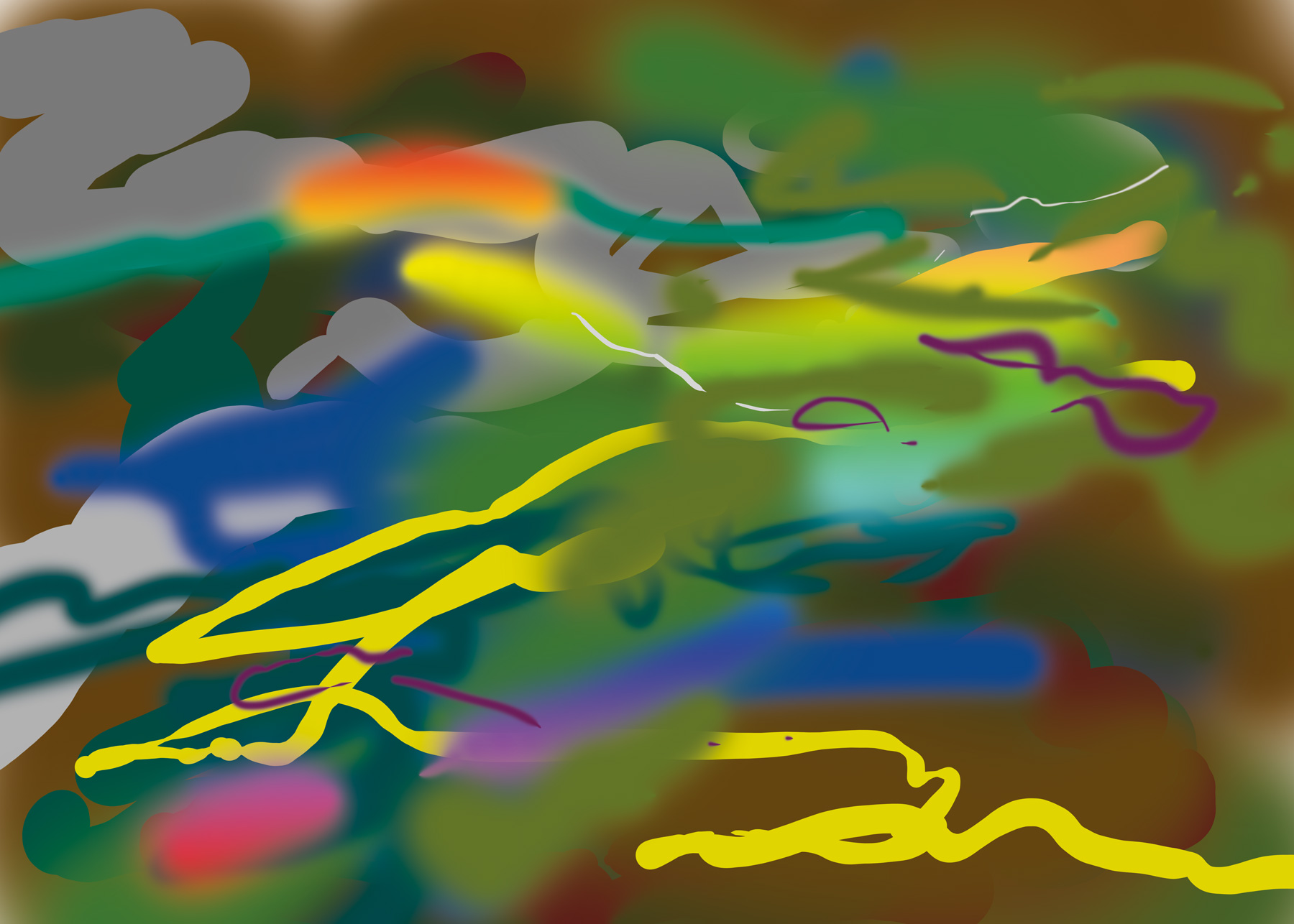Field Studies
2019 - 2020
Field Studies is a series of digital paintings made in Photoshop using a drawing tablet. They exist somewhere between the physical and the virtual world. The files are clearly virtual as are the colours and brushstrokes they contain but the input on which the brushstrokes is based is very much physical. They are the product of the artist hand swinging a pen on the pressure sensitive drawing tablet. The paintings also contains Photoshop standard features like gradients and inverted colours. The paintings is referencing some of the great masters in abstract art like Kirkeby, Jorn and Rothko. Not that the paintings is in any way on their level. They are merely cheap copies or bad parodies. Like a midi version of some famous overture. Sometimes too vibrant in colour and too expressive other times almost monochrome and too hastily executed. Maybe the cheap copy or the bad parody can also be thought of as genuine artistic expression? Maybe the combination of the sleek colours, the generic gradients and the virtual brush stokes contains some formal qualities almost like a drunk guy in a tourist filled dive bar singing karaoke and just for a few fleeting moments he hit the notes spot on and makes the crowd forget that it is not actually Frank Sinatra singing but a hammered backpacker on a marathon bender.

#54

#53

Test prints on the studio wall.

#65

#49

The publication “The Lost Zine” documenting the project.

#41

#12

#28

#57

Spread from the publication “The Lost Zine” documenting the project.

#44

Digital print on canvas.

#52

#38

#62

Digital prints on canvas.

#47

#35

Front and back from the publication “The Lost Zine” documenting the project.

#59

#63

#13

#31

The Adobe software used to create the paintings.

#23

#14

#61

#07

#04

#03

Digital prints on canvas.

#43

#69

The publication “The Lost Zine” documenting the project.

Spread from the publication “The Lost Zine” documenting the project.

#26

#24

#74

#73

The Adobe software used to create the paintings.

#72

#70

#67

#66

#36

Spread from the publication “The Lost Zine” documenting the project.

#51

#60

#64

#25

#46